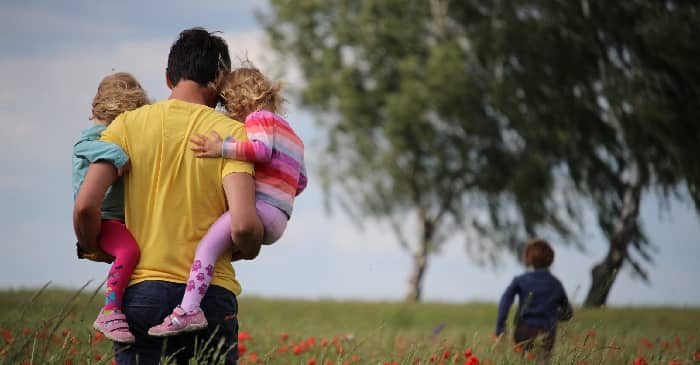In the U.S., the overdose (OD) death rate is 21.6 deaths per 100,000 people. Arkansas is not immune from the nationwide substance abuse epidemic that affects millions of Americans. Arkansas has, on average, 388 overdose deaths per year, and the overdose death rate is almost 14 deaths per 100,000 people. Many different types of treatment centers are available for people living in Arkansas. This article will focus on different treatment types and the stages involved in recovery.
Inpatient or Outpatient Rehab in Arkansas?
One of the first steps is deciding whether inpatient or outpatient rehab is needed. Residential inpatient treatment in Arkansas includes 24-hour care at a live-in facility. Treatment includes medical and behavioral therapy.
Outpatient treatment programs give people more flexibility and are an excellent choice for people who can’t take much time off from their jobs, school, or families. In most outpatient treatment programs, patients meet at a clinic 1-2 a week for several hours per visit.
Some programs initially begin as an inpatient to provide medical stabilization or partial hospitalization for people with moderate cases or may involve intensive outpatient programs and outpatient clinic visits for follow-up. People with severe drug or alcohol use disorders are typically best served by inpatient treatment programs.

Outpatient Option
There are many different types of outpatient treatment programs for addiction, including sober living homes, but three of the most common include partial hospitalization programs, intensive outpatient programs, and 12-step programs.
Partial hospitalization programs (PHP):
This is the most intensive outpatient program type. PHPs are a good option for people who need continued step-down level treatment, for people experiencing a relapse, or who have completed inpatient treatment. Partial hospitalized treatment programs are completed during the day and allow you to return at night. They usually involve 6-8 hours of treatment, 3-5 days weekly.
PHP treatment may include:
- Medication-assisted treatment (MAT)
- Medication management
- Behavioral therapy
- Individual or group counseling
- Support groups
Intensive outpatient programs (IOP):
Intensive outpatient programs are a good option for people who require long-term care for severe addiction and those who are relapsing after completing inpatient or partial hospitalization programs. They just need reminders of the fundamentals of treatment as they continue their recovery.
Intensive outpatient programs are similar to PHPs, but visits are less frequent. IOP visits may last 2-4 hours daily and 2-3 days weekly. Some IOP programs use medication management and therapy alone, while others may use a combination of counseling, therapy, and participation in support groups.
12-step programs (support groups):
12-step programs can be essential to aftercare plans and help people with long-term recovery goals by holding them accountable.
12-step programs ask participants to do the following:
- Stay sober throughout their recovery
- Forgive others and oneself
- Give up trying to change circumstances that are out of their control.
Instead, 12-step support groups advise participants to concentrate on improving themselves through development, forgiving others, and altering their thought patterns.
People attending 12-step programs benefit from meeting peers going through the same thing in a group setting where they can hear their stories, connect, and build lasting relationships, which help create a fulfilling life necessary for recovering from addiction.
Stages of Treatment at Rehab in Arkansas
There are four stages involved in addiction treatment: Initiating treatment, early abstinence, maintaining abstinence, and advanced recovery.
Stage 1: Initiating treatment
The first stage begins when you seek help from a professional for alcohol or drug addiction. The goal of treatment at this stage is to assist you in deciding to actively participate in and accept treatment, as well as the purpose of abstinence. In this stage, a thorough history of your drug use will be taken, you meet the counselor you will work with, and you will work to develop a treatment plan unique to your needs.
Substance abuse counselors work with you and may help you examine the damage your addiction has caused, explore different feelings you experience, like denial regarding your problem, and help motivate you to continue your recovery.
Stage 2: Early Abstinence
Once you have committed to continue treatment, you enter the second stage of rehab, called early abstinence. Many people find this one of the most challenging stages to cope with because of several factors, like continued physical cravings, psychological dependence, withdrawal symptoms, and triggers that tempt people to relapse.
During this stage, counselors work to help you with challenges that can arise, like social pressure to drink and other high-risk situations. Trained addiction counselors help teach coping skills to help you lead a sober life and provide you with tools for your recovery journey. Some strategies that help people continue on the path to recovery include:
- Understanding the triggers that can lead to cravings
- Promoting participating in healthy activities
- Developing new behaviors to turn to instead of alcohol
- Participation in self-help groups
Stage 3: Abstinence maintenance
You move into the abstinence maintenance stage after roughly 90 days of continued and sustained abstinence. If you are in a residential treatment program, this is generally when you move to outpatient follow-up or continue the counseling phase as an outpatient. The main goal of this stage is avoiding a relapse.
Individuals learn methods and tools to help with coping, such as:
- Learning how to manage anger, stress, and other emotional triggers
- Utilizing proper diet, nutrition, and exercise
- Developing a healthy, drug-free lifestyle
- Building healthy relationships
- Learning money management and employment skills
- Avoiding substituting your current addiction for another one
The abstinence maintenance phase lasts roughly five years of being clean and sober. Only after that period does follow-up counseling usually end.
Stage 4: Advanced Recovery
After five years of being in recovery, you enter the final stage of your rehab journey – advanced recovery. At this point, you have successfully created a new and healthier lifestyle and learned and incorporated different methods and tools to cope with and navigate the challenges involved in abstinence and recovery.
Developing long-term goals for yourself, establishing and maintaining a consistent daily schedule, forming healthy social relationships with sober people and people who do not drink, participating in healthy physical activities and other hobbies, and engaging in activities that bring meaning and happiness to your life like religion, community work, art, and music are all strategies that you can incorporate to maintain your recovery journey and toward living a happy, healthy and fulfilling life.
Don’t let addiction define the course of your life. Harness the courage to seek help and to start your journey towards recovery today. Call EagleCrest Recovery today to learn more about how we can help you navigate the steps to recovery.
Remember, in the face of adversity, we’re stronger together. Begin your recovery journey with EagleCrest, and let’s walk this path to a healthier, brighter future together. To talk more about your rehab in Arkansas options, call us today: 844-439-7627.
References
- National Center for Drug Abuse Statistics (n.d.). Alcohol Abuse Statistics. https://drugabusestatistics.org/alcohol-abuse-statistics/#arkansas
- Mercer DE, Woody GE. An individual drug counseling approach to treat cocaine addiction: The collaborative cocaine treatment study model. National Institute on Drug Abuse.


